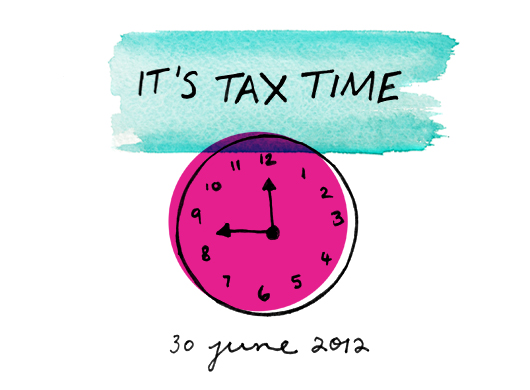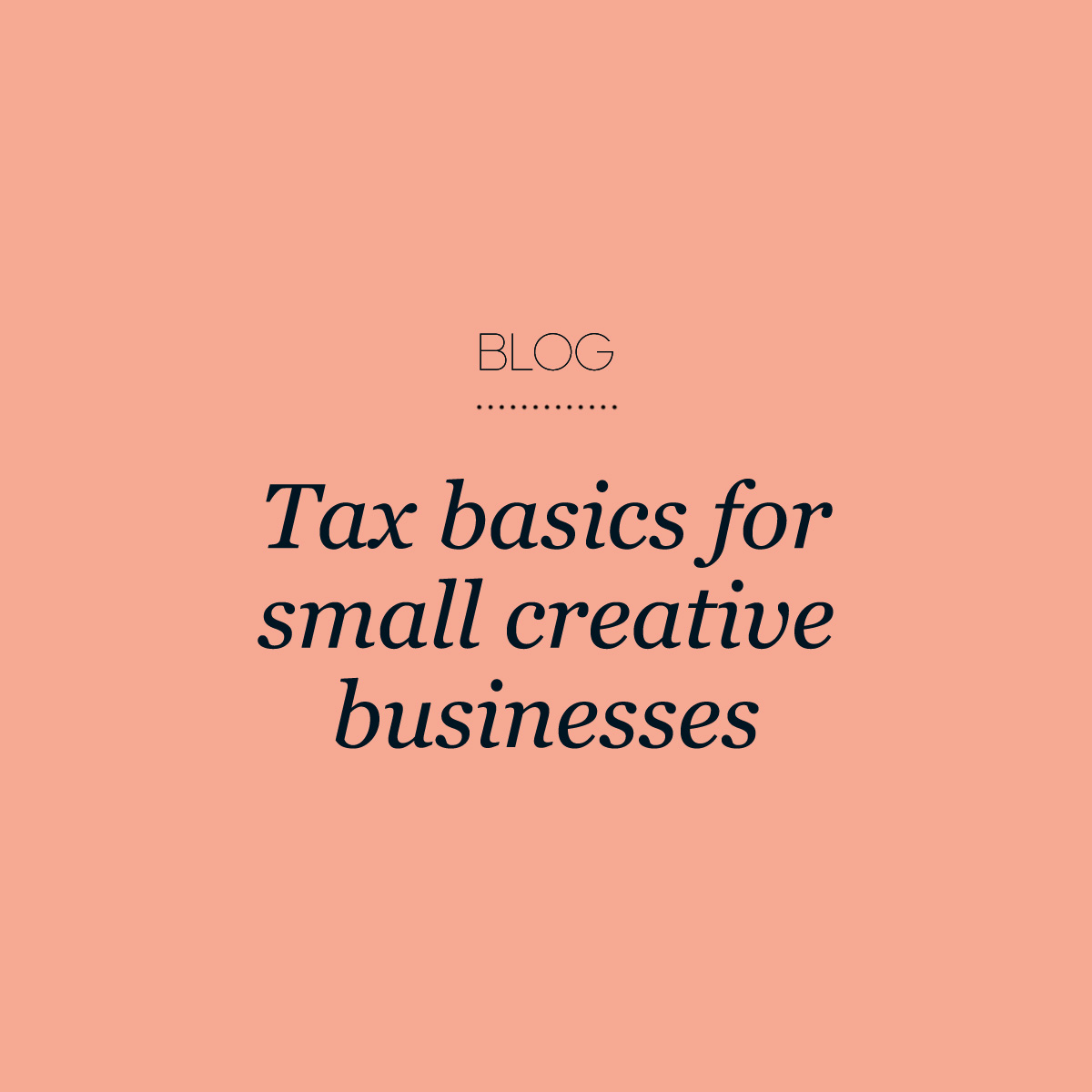Do your tax: advice from creatives to set you on your way
The month of June means crips winter mornings and cold nights. The idea of bunkering down with a glass of wine or hot chocolate and doing something homely in my spare time is oh so enticing and alluring. However June also means…. tax time is looming.
Image: Photo by Anna Shvets from Pexels
The month of June means crips winter mornings and cold nights. The idea of bunkering down with a glass of wine or hot chocolate and doing something homely in my spare time is oh so enticing and alluring. However June also means…. tax time is looming.
If you’re anything like me, tax is something that is subject to extreme procrastination because it’s not particularly fun, and I admit numbers send my eyes into a glaze. However, as a creative with a small business and several side hustles on the go its imperative that it’s done right.
So, with June 30 looming, I’ve dived into the trusty CWC blog archives to help whip myself into gear and found some gems from over the years. Here are some useful blog posts which will hopefully set me on the right track, and help you out too.
Tax Basics for small creative businesses
by Jes Egan.
Just want to be creative and not think about your tax? So do most of us, however there are many administrative tasks to running a small business and sometimes they can get in the way of being creative and doing what you love. Unfortunately, most of these tasks are important and avoiding them can land you in trouble. Here are some tips to help you prepare for your tax. Read more here.
Organise me - it’s tax time
by Andrea McArthur
Tax time. Time to get serious. The count down to June 30 is on and we only have 5 days left. Now is definitely the time to start thing about your Tax. Below are some ideas to get you thinking about your Tax this year. Read more here.
My Advice: Staying on top of admin
By Lizzie Stafford
We asked three organised business owners how they stay on top of the books without going insane. In the wise words of potter Ilona Topolcsanyi: “Admin is like a leg wax: if you move quickly, the pain is minimal and the results are pretty damn sexy.” Read more here.
Tax basics for small creative businesses
Just want to be creative and not think about your tax? So do most of us, however there are many administrative tasks to running a small business and sometimes they can get in the way of being creative and doing what you love. Unfortunately, most of these tasks are important and avoiding them can land you in trouble. Tax is definitely one of those things, admittedly one that a lot of people find the least enjoyable. Here are some tips to help you prepare for your tax.
Business versus individual It can be really easy to lose the distinction between “your” money and “the businesses’s” money, especially when you’re just starting out or are a sole trader. To make tax simpler, ensure that these are clearly defined. A simple way to do this is to have a business bank account in addition to your personal bank account, and make sure all funds going in and out for the business are coming from here. It’s not a bad idea to have a few business accounts, such as a savings account, a credit card, and a GST payment account (if applicable) that you can transfer funds into as sales are made.
Be ready Don’t leave it to the last minute; it is much easier if you prepare yourself as you go throughout the year. When it comes to your tax, you need supporting documentation. So instead of scrambling to find your receipts at the last minute, file them as you go. The ATO will accept electronic or paper receipts, so either scan and file them on your computer or put paper receipts into a folder. Find a system that works for you and is easily retrievable. The types of documentation that you are required to have are:
- Sales receipts
- Expense invoices
- Bank statements
- Credit card statements
- Employee records (wages, super, tax deductions, contracts, etc.)
- Vehicle reports
- List of debtors and creditors
- Assets purchases
Not great at filing as you go? Get a tray or plastic folder and just put them all in there. Then set yourself up a regular calendar reminder to spend thirty minutes each week or month doing your filing. That should be enough and will make tax time much easier.
Don’t forget, the ATO requires that you keep your records for five years, so make sure you keep your files once lodged.
Doing it yourself If you decide to lodge taxes yourself, you can use myGov as this is now for individuals and sole traders (e-tax has been replaced). This is an easy, quick, and secure way to lodge. Once you’ve opened a myGov account, you will get access to a number of useful calculators and tools. (Note: if using a tax agent, speak to him or her first before opening a myGov account.) There is also an ATO app that will help you record deductions, access online services, find key dates and set reminders, lodge and track your tax return, plus many other useful things. Find it in the Apple app store, on Google Play, or in the Windows phone store.
Small business tax concessions If your business is earning less than two million dollars (that’s gross income, excluding GST), you may be eligible for small business tax concessions, such as immediately writing off purchases under twenty thousand dollars. To see if you’re eligible, talk to your tax agent or check out the ATO website for more details.
Need more help? Get assistance from a small business qualified tax agent for peace of mind. There is no harm in knowing when to outsource help. Each business is different, so get a specialist to help you or have a look at the ATO’s digital services for small business tools; they may be helpful.
Being organised throughout the year will help with most aspects of running your business, and will make tax time, especially, more seamless and less stressful, allowing your creative juices to flow freely without added tax-time stress!
Jes Egan is a “practical creative” and very busy lady, doing the business in a digital agency and working as an artist and university lecturer. Follow her on Instagram at @paper_chap.
Organise Me: It's Tax Time
By Andrea McArthur

Tax time. Time to get serious. The count down to June 30 is on and we only have 5 days left. Now is definitely the time to start thing about your Tax. Below are some ideas to get you thinking about your Tax this year.
Organize Buy a filing system and commit to it, your filing system could be as simple as a physical accordion file or go digital with some financial software (there are many different programs on the market, just ask around and trial a few).
Decide your key spending categories, record your expenses and keep your receipts. You can even find software that will allow you to view your expenses as a colourful pie graph, how shocking. I have started organising myself for Tax time and I have decided on a few categories:
- Office expenses under $1000 - Office expenses over $1000 (which are deemed depreciating assets and can be depreciated over time, see below about the changing rules) - Client printing - Books - Professional memberships - Software - Stationery - Phone - Internet - Parking -Travel.
Here is the ATO Guide to claiming business deductions www.ato.gov.au
Save Use a percentage savings model and stash some cash away for the Tax man. As a newbie freelancer my annual income is relatively unknown. Instead of continuing a back breaking savings plan or changing my name and going into hiding at Tax time I like to squirrel away some income as it comes in. I put away 30% of any freelance income into an online high rate savings account specially for Tax. This should cover my tax with deductions already considered. If you are registered for GST I am told that this percentage will be slightly higher approximately 35%.
Hire I am a professional in my field not a Tax accountant, I know this and that is why I believe that I should hire a professional in the field of Tax accountancy. I am two years new to Brisbane and so I am still growing my network of people. I am one of those that asks who your mechanic is and who you get your hair cut by. It's no different with accountants, I recently asked a good friend who has been freelancing for much longer than myself who she uses or recommends as a small business/self-employed specialist accountant.
I have a list of questions to ask when I see the said accountant, I have been putting off the visit because once I do I know I need to get real. Your accountant should ideally prepare your tax, give you some tips on your allowable deductions and help you prepare for the next financial year. In most cases, the savings the accountant will find for you will more than cover their fee, plus you can rest assured you haven't made any big mistakes.
Plan Eeik, yes we all need to think about where we have come from and where we would like to go in this freelancing world. Projected income is a tricky issue to tackle but setting yourself some financial goals for next year will help you feel more satisfied and motivated to network.
Try this form for setting next years financial goals: www.marketingmixblog.com
Think about if you are going to register for GST in the next financial year if you haven't already. Currently you only need to register for GST if you earn more than $75,000. Apparently though if you’re not registered for GST you can still claim a tax deduction on the cost of goods and services (inclusive of GST), as long as they are essential to your business. For instance I purchased a new iMac this year and can claim the tax back on that.
Research Tax rules which effect Small Businesses in Australia are changing from 1 July 2012. There will be significant changes to business expenses over $1,000, business vehicle purchases, the entrepreneurs tax offset and Superannuation contributions for over 50's.
If you are thinking of making some last minute business purchases hold off making any purchases between the cost of $1,000 to $6,500 until next financial year for a 100% write off in 2012/13 tax year. If you earned less than $50,000 this year be sure to enquire about the 25% entrepreneurs tax offset which is available for it's last year.
See more details here: www.thefinanceguru.com.au
My goal for the next financial year as a freelancer is to organise my financial life better in order to avoid the last minute "end of financial year" scramble. I am confident that this years trip to the accountant will be a positive exercise which will help me set myself up for the next financial year to come.
(Note: please double check all advice stated before acting.)
Andrea McArthur has a passion for all things visual and a soft spot for organisation. Type is her true love and goes weak at the knees over beautiful design. Andrea works as a freelance graphic designer in Brisbane by day and lectures in graphic design by night. You will find her sharing design related goodness via @andyjane_mc www.andyjane.com





